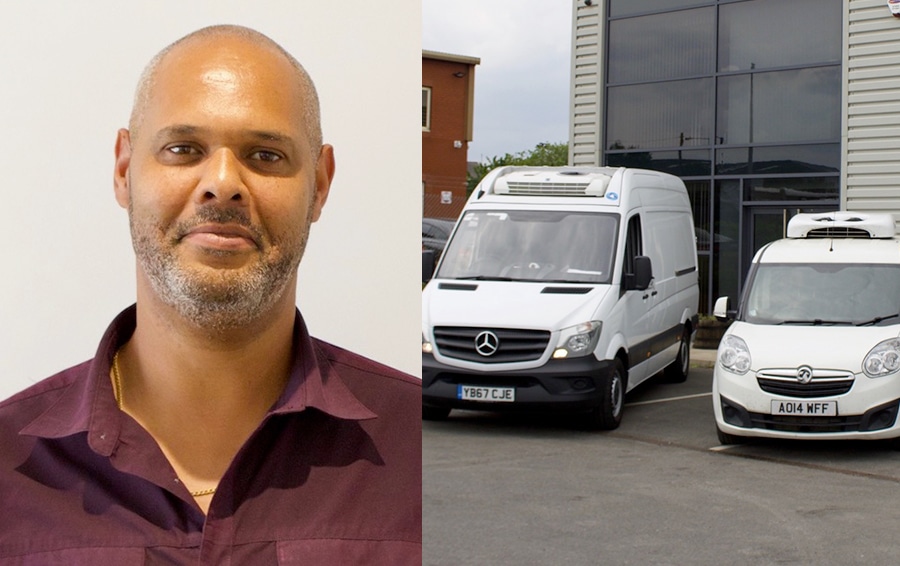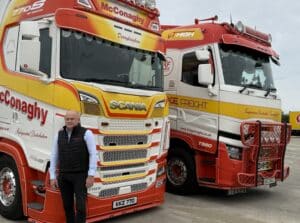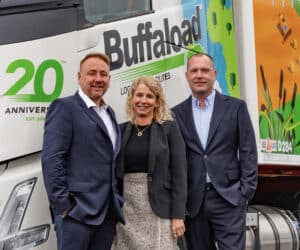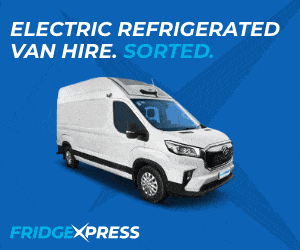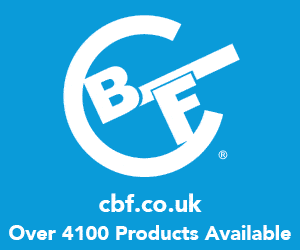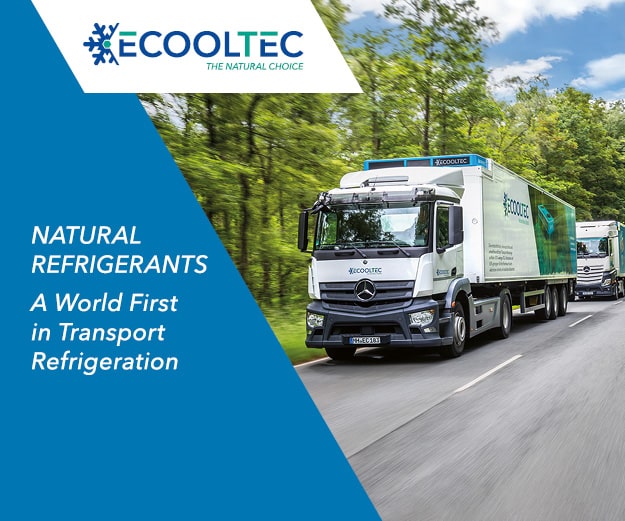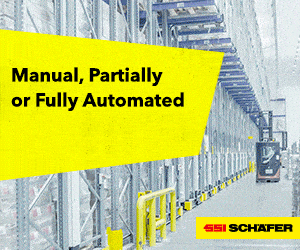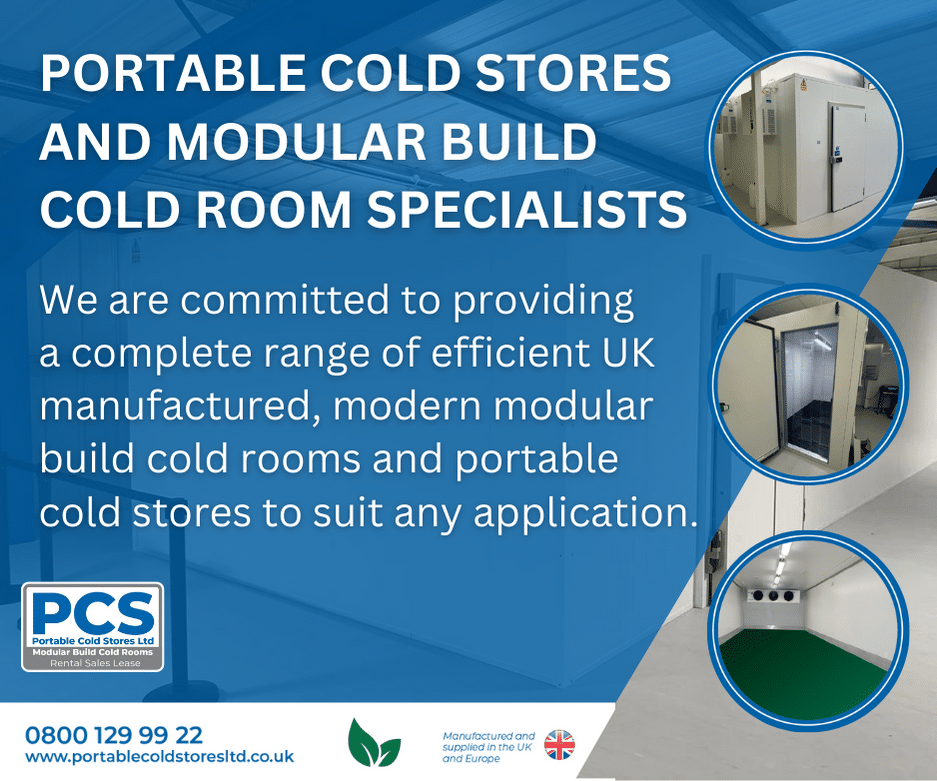Question: How did you get into the temperature-controlled distribution sector and what is your role within LF&E Transport?
- Answer:
My career in the temperature-controlled sector spans almost 23 years and dates back to 1998. At this time I worked inside a fleet management company where I was responsible for, along with my team, to manage the design, build conversions and fleet maintenance for the largest (DtP) homecare company at the time and their fleet of over 200 pharma spec temperature-controlled vans.
I gained valuable insights and experience for over 10 years in this role, it certainly set the foundations and my understanding of the need to deliver high-quality service levels that are demanded in our industry.
I started LF&E in 2008 and today I hold the position of CEO managing the executive board, and I am responsible for the delivery and performance of our growth strategy.
Question: Could you tell the readers of TCS&D, what services LF&E Transport offers, please?
- Answer:
Through a nationwide network, LF&E provide a wide range of MHRA approved temperature controlled services, including next day and on-demand same-day temperature-controlled refrigerated transport courier service including direct to patient and clinical trials services, specialising in the pharmaceutical, medical, healthcare industries.
We have also expanded into temperature-controlled warehousing and supply chain solutions, and critical high-value cargo services
Question: Can you tell us what temperature-controlled vehicles that LF&E Transport operates?
- Answer:
We operate a fleet of over 130 temperature-controlled vehicles, the majority are 3.5t LCV pharma spec dual temp vehicles built on our preferred specification of Mercedes Benz Sprinters with Thermo King conversions.
A fleet of Mercedes Temperature controlled trunking vehicles are also utilised to connect our regional depot network to our national distribution centre.
The pharma spec vehicles are also supported by a range of dry freight vans that we utilise for specific critical cargo deliveries. We have also launched our first HGV fleet over the past 12 months.
Question: Are you using telematics across your fleet currently? If so, what advantages do you see this gives your clients?
- Answer:
At LF&E we have adopted Verilocation for our GPS tracking and remote temperature monitoring, we are also developing a new app for vehicle maintenance reporting and temperature information to help meet GDP requirements.
Linkedin to our Metafour solution, telematics are providing more accurate time windows for deliveries that allows customers to plan their own days better knowing an LF&E driver will be with them inside a two hour time window.
Question: Customer needs are constantly changing, so what are you finding is now the biggest request from your customers?
- Answer:
Question: What environmental measures does LF&E Transport incorporate to ensure best practice?
A new initiative in 2021 has been adopted by the executive team, this to achieve an improved environmentally sustainable service for our clients and the community. Ultimately the goal would be to achieve a carbon neutral position.
The program is in its early stages of research, and we are planning to have our strategy ready for adoption commencing in 2022.
Areas around consumption of energy from cold stores, property depots, euro 6 emission vehicle adoptions plus the trialing of electric vehicles are all under review. As is increasing efficiencies in the way we plan routes are the challenges we are facing with confidence
to reduce our carbon footprint
Question: Will LF&E Transport be running any electric vehicles in the near future?
- Answer:
We are currently trialling a range of electric vehicles on our fleet as we explore the opportunities to maintain our high levels of service delivery while lowering our carbon footprint.
The utilisation of electric vehicles is highly dependent on the mileage range per charge, our commitment is firm to this process. However, the reality is in these early days of electric technology in our fleet and the wider temperature-controlled sector, there’s lots more testing required with route planning adjustments to ensure we can move towards an increased electric utilisation within our fleet.
Question: Now that the UK has left the European Union and Brexit has finally happened, have you noticed any changes with your business?
- Answer:
Specifically with Brexit, the pharmaceutical companies have from our experience seen the biggest change, inside LF&E the increased demand from them for a higher quality of temperature controlled deliveries is certainly being raised and expected as standard.
The dilution of Brexit impact is naturally the shadow of the pandemic which followed in just over a month from us leaving the European Union on the 31st July, the demands placed on all in the industry as a result of the pandemic somewhat have taken the focus off Brexit.
The biggest challenge has been vehicle availability – our fleet acquisition strategy has had to change significantly with longer lead times on vehicles and raw materials in conversion being affected. Better proactive fleet maintenance is required to manage the older higher mileage vehicles. Despite almost all our fleet being under 24 months old, and a proactive forward ordering strategy for vehicles, the delays on chassis and the increased mileage from new contracts naturally have been the most direct impact we have experienced.
Question: The last 18 months has thrown us all a curveball, how has business been for you since the pandemic started?
- Answer
The pandemic has brought both challenges, but also opportunities to LF&E. Our primary commitment was to ensure our staff bases wellbeing was prioritised to keep them safe.
As key workers our team have been on the frontline delivering essential medicines to vulnerable patients which required the team to adopt different strategies deliveries ensuring a safe and socially distanced way was in place.
Our philosophy was simply to protect our team, to protect our client’s patients.
The increased demand for medicines has seen a significant rise in new contract wins for LF&E, we are proud to have stepped up and delivered for our clients own increased requirements.
To assist with this, we have made a major investment into the Metafour online booking and live tracking with sign on glass technology that allows LF&E to not only serve its clients better, but also allow our customers easier access to booking and scheduling their patent deliveries. With dedicated delivery windows, serving patients better to reduce their own stress levels with reassurance of timed deliveries puts their minds at ease that their medicines will arrive on time.
This is often an overlooked consideration around the pandemic, the stress of the patient who depends on the essential medicines to improve their lives, to LF&E this is well understood and placed at the centre of our continued innovation and technology investments.
Question: Lastly, would you like to share any news about your company that you feel would benefit the TCS&D readers?
- Answer:
LF&E have always been built on the ethos of quality client focussed service, the last 24 months have ensured we have not only maintained this ethos but built on that commitment.
The continued investment into our national expansion to serve our clients better has seen us launch a new national distribution centre in Swadlincote (Derbyshire). Further, increase our regional depots to almost 90% coverage of the UK.
Today LF&E services clients through these regional depots including Scotland, Northern Ireland, Wales as well as increasing our coverage in the South West Midlands and a point of focus for us over the past 12 months has been to increase our investment into our regional depots in and around the London area.
These company-wide initiatives to serve our clients better provides a trusted and cost-effective solution for our clients, being local means we can react faster, being national means we can deliver anywhere and this also provides increased efficiencies for our business model.

